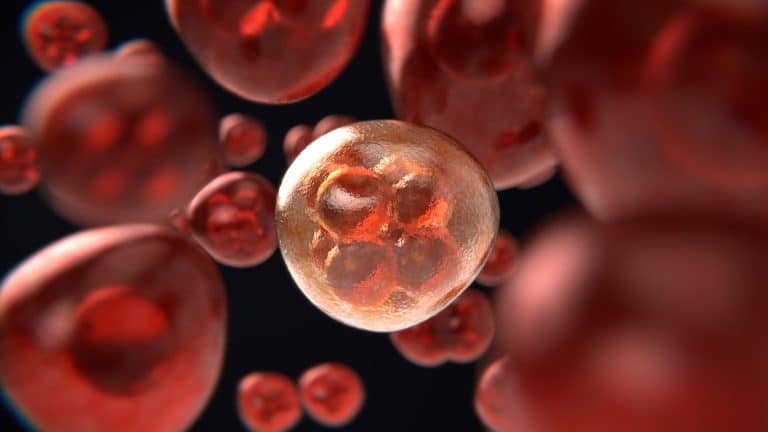An Overview of Potential Resveratrol Benefits for 2024

If you’re the health-conscious type and on the lookout for the latest supplement to promote your overall well-being, then you may have heard about resveratrol. Occurring naturally in red wine, this compound is considered the chief ingredient of the beverage that promotes a healthy heart. However, there’s a long list of resveratrol benefits that make this plant-based supplement truly fascinating. Let’s thoroughly examine resveratrol to learn about its possible benefits, find the best sources, and assess what the scientific community has to say about it.
About Resveratrol
Resveratrol is a plant-based polyphenolic compound with antioxidant properties. It is a phytoalexin—a protective antibiotic produced in plants under stress brought on by drought, fungal attack, inflammation, or ultraviolet irradiation. The compound is abundant in red grape skins, pistachios, berries, and peanuts. Red wine is also a great source of resveratrol. Scientists became interested in the benefits of resveratrol primarily due to its antioxidant properties. Resveratrol has undergone over two decades of studies. Although research has shown many positive effects during in vitro and in vivo experiments, further clinical trials are needed to assess the true potential of resveratrol.
What Is Resveratrol Good For?
Resveratrol shows promising advances in several areas of medicine and supplementation.
Research suggests the following benefits:
- anti-inflammatory properties
- help with joint pain (preventing cartilage from deteriorating)
- antioxidant effects
- atherosclerosis prevention
- LDL cholesterol reduction
- inhibition of blood clotting and platelet aggregation
That is, however, not where the list ends. Resveratrol might also prevent cancer cell spread and maturation. Analysis suggests that resveratrol benefits for cancer prevention are promising, as it may change the gene expression in cancer, inhibiting growth. It can also keep certain hormone-dependent cancers from spreading. Studies reveal that resveratrol can also fight against Alzheimer’s disease by preventing amyloid plaque from developing in the brain. It’s also believed that the compound stimulates eNOS activity, producing nitric oxide, which helps mitigate hypertension.
What’s more, resveratrol may improve insulin sensitivity, thus lowering the risks of developing diabetes. Resveratrol is good for this as it seems to stop a specific enzyme from turning glucose into sorbitol. Additionally, it can mitigate the symptoms of diabetes by protecting against oxidative stress, decreasing inflammation, and activating the AMPK protein, which helps the body metabolize glucose. Another fascinating perk of the compound is its ability to increase the lifespan of yeasts, flies, and fish. So far, it’s not clear whether this would work on humans, but around 60% of the organisms studied did display enhanced longevity.
A couple of other incredible benefits of taking resveratrol are its potential to combat the effects of aging and help with weight loss (more so when coupled with the best fat burners or quality green tea extract). Studies have indicated that it can produce gene alterations in mice in low doses, resulting in less obesity and delayed effects of aging.
Possible Precautions With Supplementation
These attractive health benefits are likely to entice most of us to open another tab in our browser and search for the best resveratrol supplement money can buy. However, before you do that, please continue reading. Because while there’s a vast market for resveratrol supplements (over $30 million in the US), there are a few more things that you should know before purchasing resveratrol products.
For starters, resveratrol supplements are viewed as food, not drugs, by the FDA. Therefore, the concentration of the compound and the strength of the product aren’t regulated. Moreover, the efficiency of most products remains unproven by scientific evidence. It’s not that these resveratrol sources are unreliable, but one should exercise caution when choosing a brand. Make sure to research these products by reading several expert reviews.
Furthermore, make sure to consult with your physician before you begin taking the supplement, as resveratrol could interfere with certain prescription medications. All in all, the list of resveratrol benefits is hard to dismiss! But knowing what to look for and what to expect is paramount. Buyers must be vigilant when looking at products and labels—always choose the ones tested by third-party labs.
Safety Concerns
After speaking about the fantastic potential of this compound and assessing expert thoughts about supplementation, it’s time to discuss the safety issues of taking resveratrol. Most people assume that natural, over-the-counter products are harmless. However, the truth is, all compounds and supplements have potential side effects, and resveratrol is no different.
Here are some safety concerns consumers should be aware of.
First of all, there’s a risk of developing hormone-sensitive malignancies for women as resveratrol is a phytoestrogen, producing estrogen-like effects in the body. While the benefits of resveratrol in women’s health look encouraging, the estrogen-like effects of the compound may stimulate ovarian, uterine, and breast cancers. It’s always important to note that resveratrol may lead to bleeding problems in people who take blood thinners like aspirin or warfarin. Consumers who are taking drugs with a CP450 warning should also use caution. At higher doses, resveratrol can increase the toxicity of certain medications and might even decrease the activity of others that rely on CP450 for better metabolism.
What’s more, resveratrol and trans-resveratrol benefits may be compromised if you take carbamazepine (Tegretol), as animal studies have suggested that the drug can reach high concentrations in combination with resveratrol in the blood. Diarrhea and digestive problems can also occur at higher doses.
Determining the Best Resveratrol Sources
We’ve discussed the side effects and the latest scientific opinions regarding resveratrol. Now let’s talk about where to find the best source of resveratrol. Experts agree that the best way to ingest resveratrol is through your diet. For example, if you regularly drink a glass of red wine, chances are, you’re already acquiring some resveratrol. Furthermore, if you eat peanuts, grapes, or blueberries, you’re most likely getting a substantial amount of the compound.
However, suppose resveratrol foods aren’t meeting your needs, and you’re looking to add supplements to your diet. In that case, it’s essential to consult with your doctor beforehand. Most of these supplements contain grape seeds. Other common ingredients are red wine, berries, and Japanese knotweed extracts. Unfortunately, they may also include emodin, a chemical known to cause diarrhea and other digestive problems. So, make sure to read the labels carefully, as, with some products, you could receive both resveratrol benefits and side effects. Always look for the term “micronized” on the product labels. These variants will help you absorb the resveratrol better.
Lastly, manufacturers don’t have to produce their products under the same rigorous standards as drugmakers due to FDA regulations. So, the best way to ensure getting positive benefits from resveratrol is to buy from a reputable manufacturer. How to find these brands? Certification stamps on labels are always good telltale signs; however, one should also look for official stamps such as CL, NSF, and USP— brands with these stamps have voluntarily had their products assessed and tested. The benefits of resveratrol supplements are more reliable from these products as stamps from these organizations verify that the claims on the label are accurate.
Conclusion
All in all, resveratrol benefits are promising. However, more scientific evidence is needed to discover the true potential of this compound. The lack of data doesn’t mean that you shouldn’t supplement with resveratrol. Just be sure to speak with your doctor before you attempt to reap the benefits of this outstanding compound.
FAQs
What is resveratrol?
Resveratrol is part of a group of compounds referred to as polyphenols. Many people believe that it can protect the body against developing certain illnesses such as cancer and heart disease.
Is resveratrol good for your liver?
According to one early study, taking 3,000mg of resveratrol every day for eight weeks won’t improve liver function nor fat buildup in obese or overweight men who suffer from fatty liver disease (not related to alcohol consumption). However, taking only 500mg of the compound every day for 12 weeks coupled with exercise and dieting can help reduce fat buildup and improve liver function.
What are the health benefits of resveratrol?
This compound has gained a lot of traction and attention in past years, most notably for its alleged anti-aging and disease-fighting capabilities. However, it’s crucial to note that the jury is still out on its effectiveness. We once again ask, what is resveratrol good for?
Well, early trials and research suggests that resveratrol might protect against diseases like:
- Heart disease—it helps to reduce inflammation and “bad” (LDL) cholesterol.
- Cancer—it could kill and limit the spread of malignant cells.
- Alzheimer’s, as it may protect nerve cells from plaque buildup and damage.
- Diabetes—it could help to prevent people from becoming resistant to insulin.
- Lastly, researchers also believe that the compound activates the SIRT1 gene, protecting the body from aging and obesity.
What is resveratrol used to treat?
Some people use it to lower cholesterol, protect brain function, suppress joint pain, and help maintain normal blood pressure levels. Resveratrol is also believed to affect blood fats positively and can even extend the lifespan of certain animals.
Does resveratrol really work?
The compound shows promising cardioprotective, anticarcinogenic, antiviral, anti-inflammatory, neuroprotective, and antioxidant properties. However, more clinical trials are needed to grasp all of resveratrol’s health benefits. So, experts urge users and other professionals not to judge its power solely based on in vitro and in vivo evidence.
Is resveratrol worth taking?
All available research indicates that there’s still a long way to go as very few human studies have been done to back up many of these fantastic claims. Additionally, experts are still unsure of the safest or most effective dose for humans and if long-term supplementation will have any hazardous side effects.
Ultimately, until there is more hard evidence about these incredible resveratrol benefits through human trials, the safest way to ingest the compound is from wine, natural foods, and reputable supplements.






